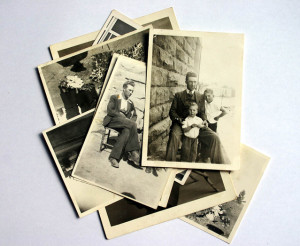Oral History: A Hidden Treasure
The Value of Oral Histories
In the novel, “The Nightingale” by Kristin Hannah, a son is shocked to discover that his mother and aunt were key figures in the French resistance during the German occupation during World War II. An educated doctor, he has lived under the assumption that he knows everything about his mother and her life, but quickly finds out how wrong he is. Like in “The Nightingale,” we would be wrong to assume we know everything about our parents, aunts, uncles, and grandparents. We are missing so much, and may need the help of a professional genealogist, but an oral history is one way to fill in the gaps out.

While working on a particular branch of your family history, what would you give to be able to talk to one of those ancestors for an hour or two? The information would be invaluable. Sadly, many genealogists overlook the hidden value of their living ancestors. When considering living ancestors, don’t think birth dates, location, and general family information are the only pieces of information worth collecting. Future generations will long to know more about what your family was like during today. You can give them that information by compiling an oral history.
How to get started with your own oral histories:
1. Compile a detailed list of questions. Start with things you want to know about them and go from there. Write as many detailed questions as you can, even if you know there’s no way you’ll get to all of them. You can jump around your list based on their preferences, or maybe one or two questions will get them off to a great start. Don’t forget to include questions from different time periods of their life. Childhood, teens, adulthood, marriage, and parenthood will all provide plenty to talk about.
2. Go through their family tree with them. Ask them about each family member that they remember, and add memorable details to your records. If anything they tell you conflicts with existing records, make note of it. They may have a foggy memory - or your records may be incorrect.
3. Utilize images and the internet to enrich the interview. If they mention the name of their school, see if you can find a picture of it on the internet to show them. Not only can this help jog their memory, but it will also make their history more memorable and tangible to you.
4. Reserve judgement and keep an open mind. They may have had a completely different life than the one you pictured. The stories you’ve heard about them may be embellished or even completely untrue. Explain that you want an accurate picture of their life, and that telling true stories is vital for future generations. Be sensitive about military service or difficult times in their life. At the conclusion of the interview thank them for their openness with you and the life they have lived.
5. Record the interview. You can videotape them, use an audio recording, or take detailed notes. Try to save these interviews in more than one location for optimal safety and preservation. Leave them carefully labeled and accessible so that future generations can access these oral histories.
After you've compiled your oral histories, if you have any additional questions or need help, be sure to visit our LDS genealogical services page or contact us to see how we might be able to help you.
